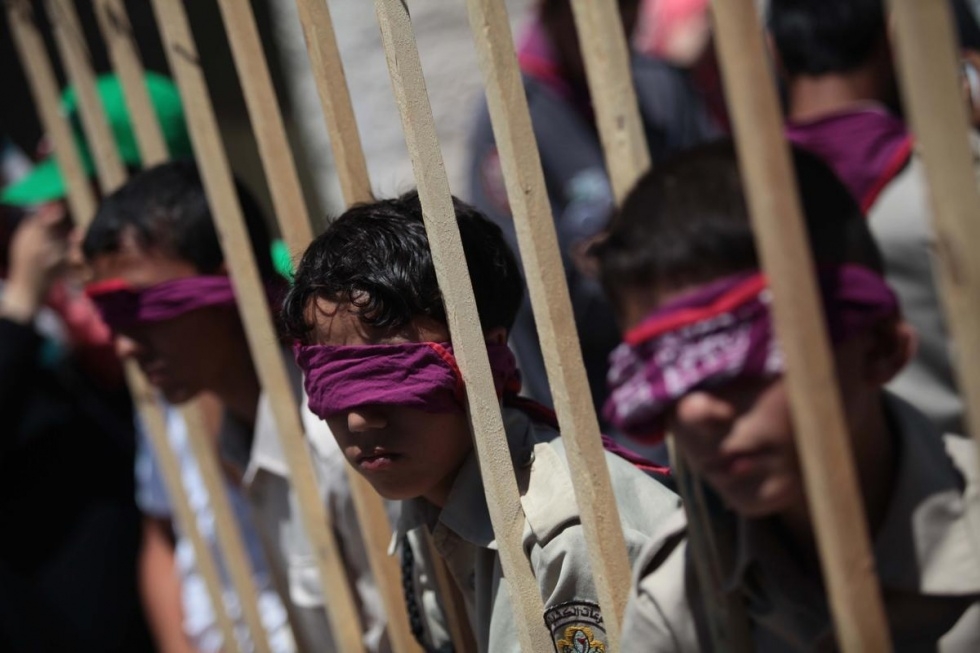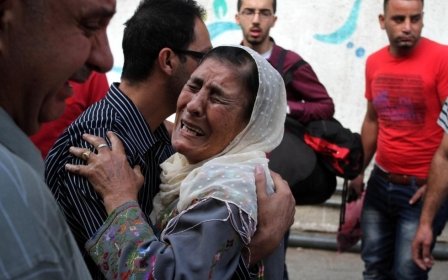Prisoners end longest hunger strike in Palestinian history

Scores of Palestinian detainees in Israeli prisons ended their weeks-long hunger strike - the longest in Palestinian history - following an agreement with the Israeli prison authorities, a Palestinian NGO announced on Wednesday.
“The prisoners suspended their hunger-strike after reaching an agreement with the Israel Prisons Services,” Qadura Fares, head of the Palestinian Prisoners' Society, told Anadolu Agency on Wednesday.
“The prisoners did not acquiesce or surrender during their hunger strike," Fares said, "and they emerged victorious at the end of their battle."
Fares declined to reveal the terms of the agreement, but said that all details would be unveiled in a press conference later Wednesday morning.
Scores of Palestinian "administrative" detainees have remained on hunger strike for more than six weeks to protest their ongoing detention-without-charge by Israeli authorities.
They have been joined by scores of other Palestinian prisoners in a show of solidarity.
Most of the strikers involved are administrative detainees who are being held without charge for indefinitely renewable six-month periods in a procedure that dates back to the British Mandate era (1920-1948).
Around 5270 Palestinians – including 191 in administrative detention – are being held in Israeli jails, according to the Palestinian Prisoners' Society.
Israel Prisons Service spokeswoman Sivan Weizman said earlier this month that their hunger strike was the longest-ever staged by Palestinian detainees.
In an attempt to prevent further hunger strikes, the Israeli government is currently discussing a law which would allow the authorities to force-feed prisoners.
Rights groups have denounced the practice, while the Palestinian authority has pressed the international community to put pressure on Israel to scrap the measure. International activists, medical practitioners and non-governmental agencies who are against the implementation of this bill say that is it a violation of human rights.
Around 1,000 health-care workers signed a petition against the bill this month.
New MEE newsletter: Jerusalem Dispatch
Sign up to get the latest insights and analysis on Israel-Palestine, alongside Turkey Unpacked and other MEE newsletters
Middle East Eye delivers independent and unrivalled coverage and analysis of the Middle East, North Africa and beyond. To learn more about republishing this content and the associated fees, please fill out this form. More about MEE can be found here.



